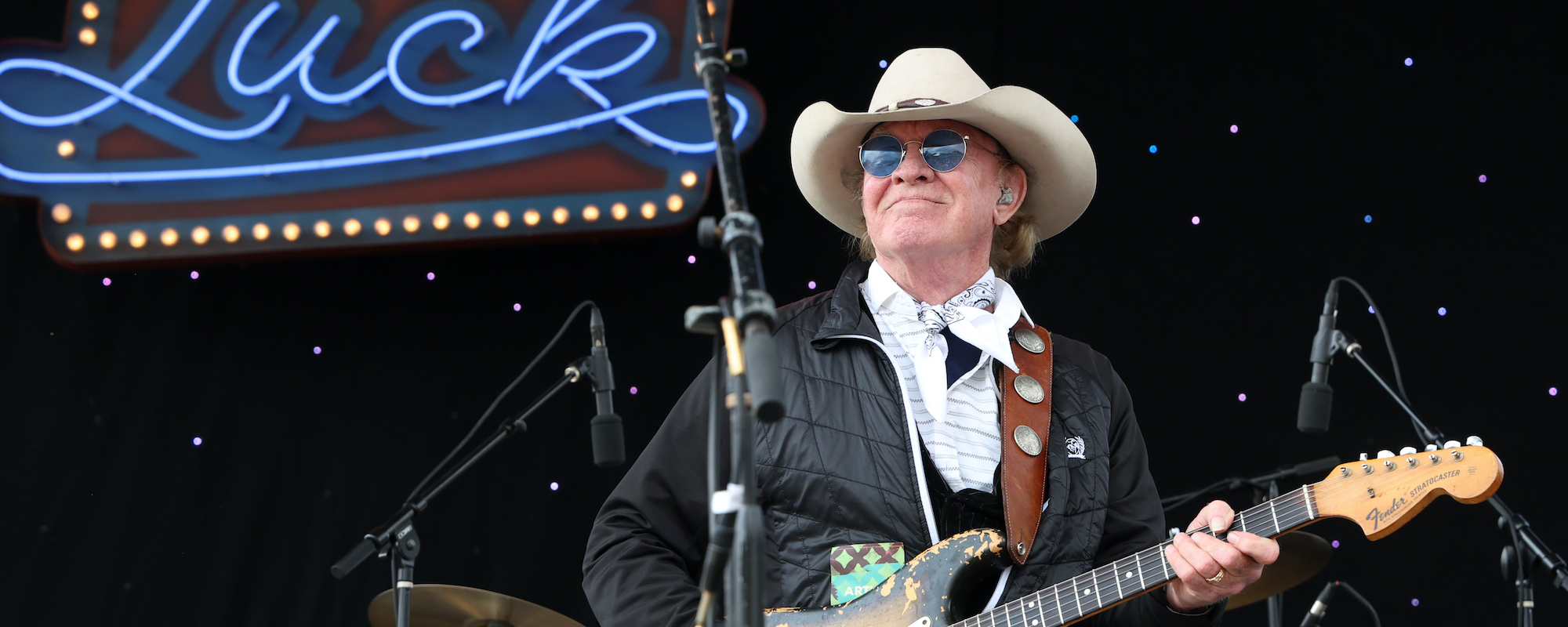Beyoncé going country on a pair of new singles created a showdown with the internet. What kind of game is the pop star playing here? On “Texas Hold ’Em,” she casts away any notion of some superficial return to roots album with its opening line: This ain’t Texas.
Videos by American Songwriter
The four-on-the-floor kick drum on “Texas Hold ’Em” sounds like colliding atoms of gospel, R&B, and country music. But the roots are deep, as she stomps and whistles, echoing the connections between African and Caribbean dancehall music to the Texas hoedowns of her home birth state.
Country music’s embrace of hip-hop was the natural progression of commonalities between disparate groups. “Texas Hold ’Em” is Beyoncé’s reverse engineering of the 808-Americana mixtape, drawn up by the queen musicologist.
Poker Face
The poker variant, Texas Hold ’Em, is used as a metaphor for romance, leading to the well-worn idiom to lay your cards down and solicit a potential lover to show their intentions.
This ain’t Texas, ain’t no hold ’em
So lay your cards down, down, down, down
So park your Lexus and throw your keys up
Stick around, ’round, ’round, ’round, ’round (Stick around)
And I’ll be damned if I can’t slow dance with you
Come pour some sugar on me, honey, too
It’s a real-life boogie and a real-life hoedown
Don’t be a bitch, come take it to the floor now
A new single from her upcoming album Act II, “Texas Hold ’Em,” is more than a cheeky metaphor; it’s part of the larger arc of Beyoncé’s work celebrating the legacy of Black artists. Her previous album Renaissance celebrated the history of club music, where Black and queer people found safe spaces and solidarity.
Like the dance/club collection on Renaissance, Beyoncé reminds listeners that country music is another kind of dance music. The dusty honky tonk bar isn’t so different from a sweaty disco, and Beyoncé threads the history of dance, connecting culture and race. The dance hall is a place to let go, survive the 9-to-5, and find love if you’re lucky.
There’s a tornado (There’s a tornado) in my city (In my city)
Hit the basement (Hit the basement), that s–t ain’t pretty (S–t ain’t pretty)
Rugged whiskey (Rugged whiskey) ’cause we survivin’ (’Cause we survivin’)
Puffin’ red cup kisses, sweet redemption, passin’ time, yeah
Super Bowl Announcement
Beyoncé announced her new album on Instagram during the Super Bowl LVIII broadcast. The week prior, she appeared at the 66th Annual Grammy Awards wearing a cowboy hat, foreshadowing a country turn.
The new album arrives March 29, and “Texas Hold ’Em” is one of two singles, alongside “16 Carriages,” released during the Super Bowl. In the teaser video, a radio flips stations from vaudeville singer Charles Anderson’s “Laughing Yodel” to Son House’s “Grinnin’ in Your Face” to Chuck Berry’s “Maybellene,” marking Beyoncé’s presence within the canon of Black music history. On a dusty road, men stare up at a billboard of Beyoncé waving her arm next to the song’s title.
Canadian artist Lowell co-wrote the country dance track with Beyoncé, Bülow, Brian Bates, Nate Ferraro, and Raphael Saadiq. Beyoncé produced the track—featuring Rhiannon Giddens on banjo—with Killah B and Ferraro. And additional production from Saadiq, Stuart White, Hit-Boy, and Mariel Gomerez.
Giddens’ appearance on the track reflects the folk musician’s advocacy for the Black origins of country music’s instruments, including the banjo, which arrived via the slave trade from Africa.
More than Reinvention
The two acts of Renaissance are more than reinvention. Taken literally, Beyoncé is reviving music’s historical roots while reawakening in each movement, cementing her legacy, and at the same time, being the responsible caretaker and educator in her long project of Black performance.
She’s a rare pop artist who’s bigger than what’s vogue. She is the trend. Beyoncé albums are cultural events because, in many ways, they set the standard for the zeitgeist, not the other way around. While her contemporaries chase hits, she’s looking deep into history, forging the future.
“Modern Sounds in Country and Western Music”
It’s hard not to think of Ray Charles’ brilliant “Modern Sounds in Country and Western Music.” He searched the country songbook and reimagined old songs, and in return, his voice introduced the “Nashville sound” to a broader audience.
Maybe the comparison is lazy, but Charles enjoyed the commercial success of “What’d I Say” and achieved complete creative control over his career. He used his newfound power to create one of the 20th century’s most crucial albums. It wasn’t a safe or easy move, but vital projects usually aren’t.
In 2016, Beyoncé dabbled in country music on Lemonade’s “Daddy Lessons,” which was later covered by The Chicks. When she appeared at the Country Music Awards with The Chicks, country music fans reacted with mixed opinions. However, eye-rolling Beyoncé’s two-step with country music misses a more significant point.
Banjo isn’t the only instrument with roots in Africa. Travel back far enough, and you’ll find all human life began there. Viewed through history’s lens, arguments over “real” country music collapse like a house of cards.
If you don’t like it, remember something Beyoncé said in her new boot-scootin’ banger: Don’t be a bitch, come take it to the floor now.
When you purchase through links on our site, we may earn an affiliate commission.
Photo by Kevin Winter/Getty Images for The Recording Academy













Leave a Reply
Only members can comment. Become a member. Already a member? Log in.